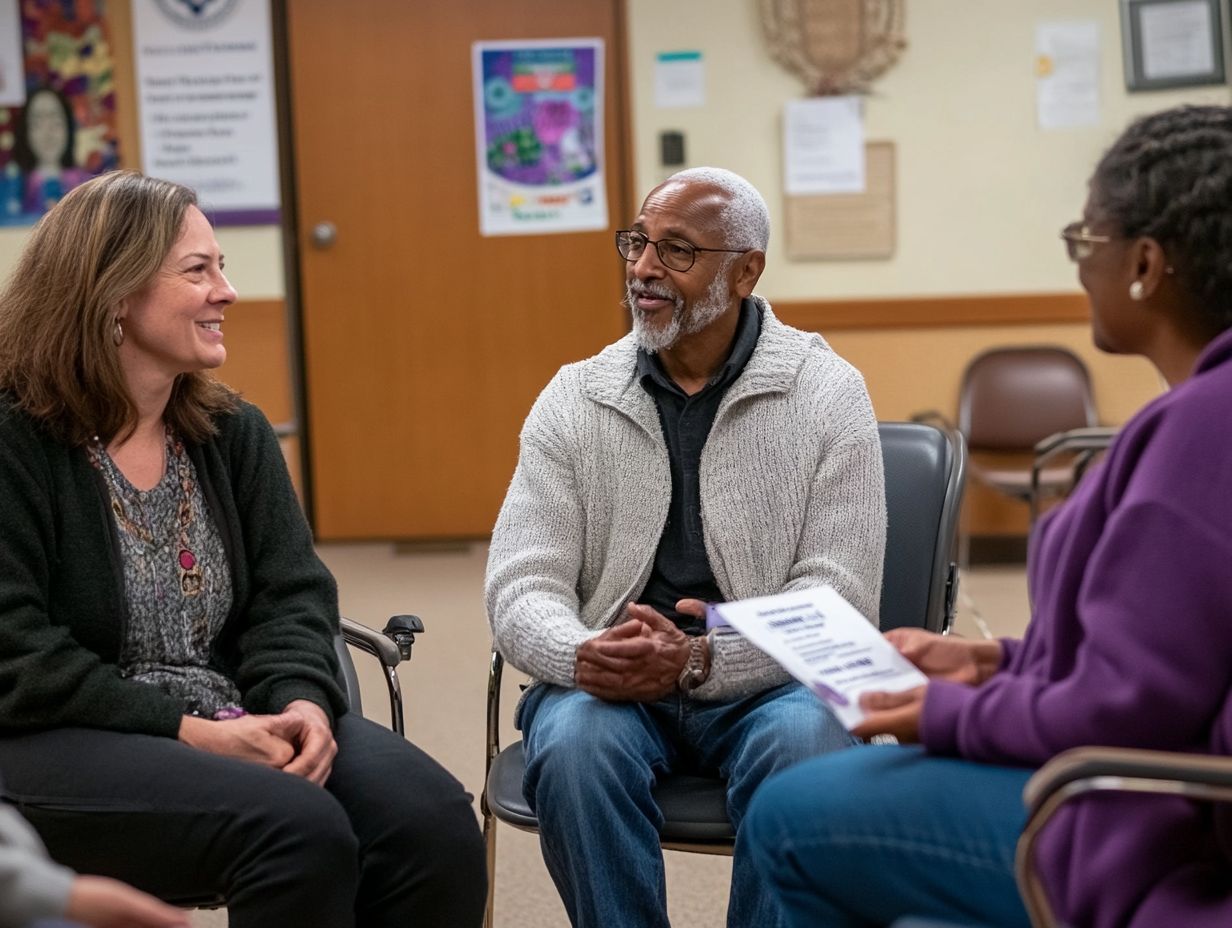Advocating for integrative cancer care involves promoting a holistic approach that combines conventional medical treatments with complementary therapies to address the multifaceted needs of cancer patients. This comprehensive model focuses on not only the physical but also the emotional, social, and spiritual aspects of care, enhancing patient well-being and supporting informed treatment decisions.
Integrative cancer care is essential because it offers benefits such as improved patient outcomes, enhanced emotional support, and better healthcare access. It empowers patients by integrating nutrition, stress management, and therapy alongside traditional cancer treatments, ensuring a personalized approach to care. This approach supports patients throughout their cancer journey, providing community resources and comprehensive patient support.
Despite its advantages, barriers such as socioeconomic disparities, limited insurance coverage, and lack of awareness pose challenges to widespread adoption. To advocate effectively, individuals can educate patients, collaborate with healthcare providers, and promote policy changes, leveraging resources like support groups and cancer advocacy organizations. Addressing these challenges requires financial aid and transportation assistance to improve access to care.
Key Takeaways:
Understanding Integrative Cancer Care

Integrative cancer care combines conventional medical treatments with complementary therapies to address physical, emotional, and social aspects of cancer.
Integrative cancer care works by collaborating with healthcare professionals to enhance patient well-being and support informed treatment decisions.
Definition and Principles
Integrative cancer care combines conventional medical treatments with holistic approaches to address physical, emotional, social, and spiritual needs of cancer patients.
Principles of integrative cancer care include health equity, patient navigation, and shared decision-making to ensure balanced treatment plans and patient give the power toment.
Why Advocate for Integrative Cancer Care?
Advocating for integrative cancer care is important because it combines conventional cancer treatments with complementary therapies to address physical, emotional, and psychological needs of patients.
Integrative cancer care improves patient outcomes by providing holistic support, which includes nutrition counseling, stress management, and physical therapy alongside traditional medical treatments. This integrative care approach involves navigating treatment options and ensuring patient needs are met.
Advocacy ensures that patients receive comprehensive care tailored to individual needs, enhancing quality of life and treatment effectiveness.
Benefits for Patients and Caregivers
Integrative cancer care benefits patients by providing improved emotional support, better health care access, and a clearer understanding of patient rights.
Caregivers benefit from support that helps manage both physical and emotional caregiving demands. They also gain access to caregiver support resources and advocate skills to enhance the quality of care for cancer survivors.
Access to financial resources reduces treatment cost burdens for patients and caregivers, enhancing focus on healing.
Barriers to Integrative Cancer Care

Barriers to integrative cancer care include limited access due to socioeconomic disparities, insufficient insurance coverage for complementary therapies, and lack of awareness among patients and healthcare providers.
Health disparities prevent equal access to integrative therapies, while financial constraints limit the availability of these services.
Additionally, misconceptions about the efficacy of integrative methods can deter their use in conventional cancer treatment plans. Educating healthcare providers and patients about the benefits of integrative oncology can overcome these misconceptions.
Challenges and Obstacles
Challenges and obstacles to integrative cancer care include limited financial aid, lack of patient awareness about integrative resources, and insufficient support from healthcare providers.
High costs of therapies like acupuncture or nutritional counseling deter patients.
Lack of awareness about integrative approaches complicates patient access to holistic care.
Healthcare providers often lack training in integrative methods, reducing patient guidance.
Ways to Advocate for Integrative Cancer Care
Advocating for integrative cancer care involves educating patients about complementary therapies, coordinating with healthcare providers to incorporate holistic treatments, and leveraging community support groups for comprehensive care.
Advocacy also includes promoting policy changes to support integrative approaches and organizing workshops or seminars to raise awareness among patients and healthcare professionals. By utilizing patient advocates and navigators, patients gain better access to care coordination and clinical trials.
Strategies and Approaches
Effective advocacy strategies for integrative cancer care include:
- Improving patient communication
- Building collaborations with healthcare providers
- Partnering with advocacy organizations to raise awareness
These strategies give the power to patients and create a supportive network for informed treatment decisions.
Training healthcare providers in active listening and patient engagement supports informed, patient-centered care.
Partnering with advocacy groups amplifies patient voices and promotes access to alternative therapies and educational resources.
Resources for Advocacy

Resources for advocacy in integrative cancer care include support groups, patient resources, and financial assistance programs offered by organizations.
Key resources include organizations like:
- Patient Advocate Foundation for financial aid
- Cancer Support Community for support groups
Organizations and Support Groups
Cancer advocacy organizations and support groups provide information, emotional support, and resources for individuals with cancer.
These entities offer educational materials, counseling services, and community forums to assist patients. Patient advocacy is crucial in these efforts, ensuring that patients receive the support they need.
Groups like the American Cancer Society and Cancer Support Community connect patients with shared experiences and foster community support. They also provide patient resources directories to help navigate the health care system.
Advocacy organizations also work with healthcare professionals to promote patient rights and access to treatments, enhancing the overall cancer care experience.
Frequently Asked Questions
What is integrative cancer care?
Integrative cancer care is an approach to treating cancer that combines traditional medical treatments with complementary therapies, such as acupuncture, massage, and nutrition counseling.
How can I advocate for integrative cancer care?

You can advocate for integrative cancer care by educating yourself and others about its benefits, sharing your personal experience with it, and supporting organizations that promote and provide integrative cancer care.
Why is it important to advocate for integrative cancer care?
It is important to advocate for integrative cancer care because it can improve the overall well-being and quality of life for cancer patients and survivors. It also encourages a more holistic approach to cancer treatment and empowers patients to take an active role in their own care.
What challenges may I face when advocating for integrative cancer care?
Some challenges you may face when advocating for integrative cancer care include resistance from traditional medical institutions, lack of insurance coverage, and skepticism from others who are not familiar with this type of treatment.
How can I address these challenges?
You can address these challenges by gathering evidence-based research that supports the effectiveness of integrative cancer care, reaching out to policymakers and insurance companies, and sharing personal success stories from those who have benefited from this approach.
How can I support loved ones who are undergoing integrative cancer care?
You can support loved ones by being a source of emotional support, helping them research and understand different treatment options, accompanying them to appointments, and being open and empathetic to their needs and preferences.





